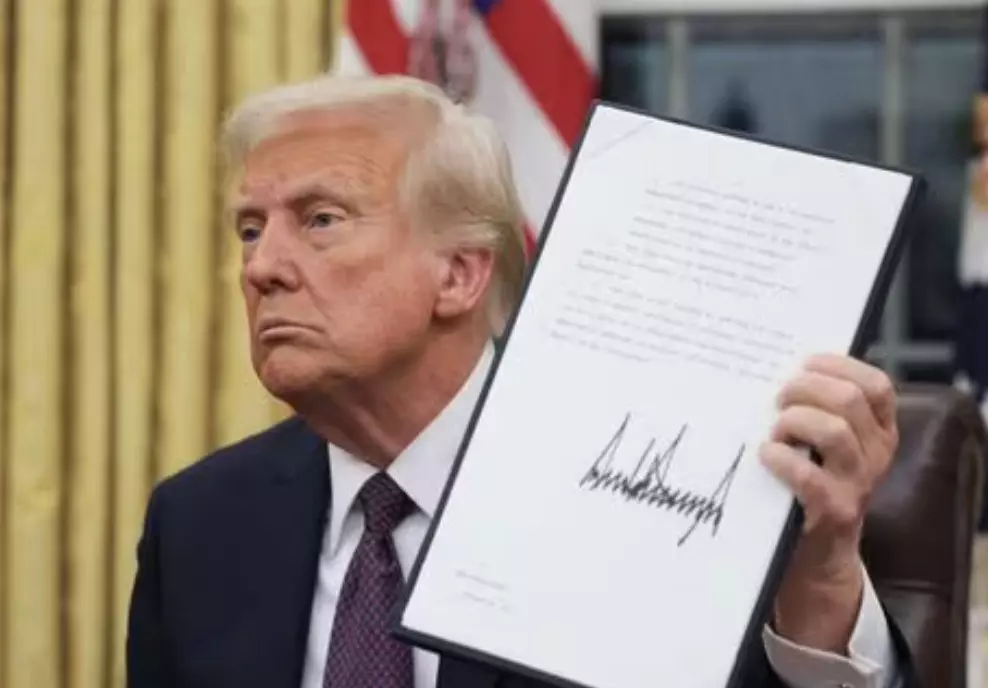Trump signs executive order to end birthright citizenship, impacting millions of Indian immigrants
image for illustrative purpose

In a move sparking widespread controversy, U.S. President Donald Trump signed an executive order on Monday seeking to end automatic birthright citizenship. Scheduled to take effect on February 20, the new rule will prevent children born in the United States from automatically acquiring citizenship if their parents are not U.S. citizens or lawful permanent residents. This decision includes individuals legally present in the country on temporary visas, such as tourists, students, or workers.
“We’re the only country in the world that does this with birthright [citizenship]. It’s absolutely ridiculous. We believe we have very strong legal grounds for this change,” Trump stated from the Oval Office.
Impact on Indian Green Card Applicants
The decision is expected to have significant implications for more than a million Indians currently waiting for green cards. According to reports from the U.S. Citizenship and Immigration Services (USCIS) in 2024, these individuals may face added uncertainty about their children’s citizenship status under the new rule.
Under the executive order, babies born in the U.S. after February 20 will not qualify as American citizens if either parent is in the country illegally or holds a temporary visa.
Backlash and Legal Challenges
The executive order has triggered strong criticism from immigrant rights advocates and civil society groups. Organizations such as the American Civil Liberties Union (ACLU) filed lawsuits on the same day the order was signed, challenging its constitutionality.
“This move will likely worsen the plight of highly skilled immigrant workers stuck in green card backlogs and immigration limbo,” noted U.S.-based author and entrepreneur Vivek Wadhwa. “Excluding birth tourists and undocumented immigrants is one thing, but penalizing legal contributors to America’s economy is short-sighted.”
Legal Hurdles Ahead
The 14th Amendment to the U.S. Constitution, adopted in 1868, has historically guaranteed citizenship to nearly all individuals born on U.S. soil. Critics argue that the new policy contradicts this long-standing interpretation. While the White House remains confident about its legal justification, experts suggest the order will face significant challenges in court.
The debate over birthright citizenship continues to highlight tensions surrounding immigration policies and their impact on America’s immigrant communities. For millions of individuals awaiting green card approvals, the stakes have never been higher.

